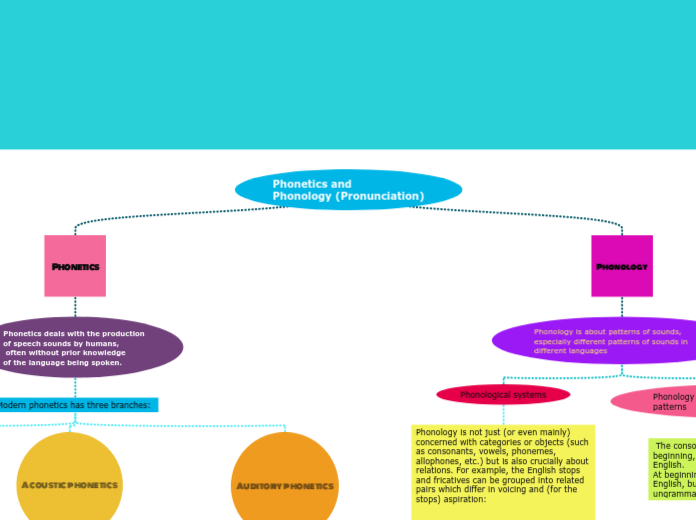Phonetics and
Phonology (Pronunciation)
Phonetics
Phonetics deals with the production
of speech sounds by humans,
often without prior knowledge
of the language being spoken.
Modern phonetics has three branches:
Articulatory phonetics
which addresses the way
sounds are made with the articulators
Acoustic phonetics
which addresses
the acoustic results of different articulations
Auditory phonetics
which addresses the way listeners perceive and understand linguistic signals
Phonology
Phonology is about patterns of sounds, especially different patterns of sounds in different languages
Phonological systems
Phonology is not just (or even mainly) concerned with categories or objects (such as consonants, vowels, phonemes, allophones, etc.) but is also crucially about relations. For example, the English stops and fricatives can be grouped into related pairs which differ in voicing and (for the stops) aspiration:
Phonemes and allophones, or sounds and their variants
They are three variants or allophones of the /u/ phoneme. The different variants are dependent on the different contexts in which they occur. Likewise, the consonant phoneme /k/ has different variant pronunciations in different contexts.
Phonology as grammar of phonetic patterns
The consonant cluster /st/ is OK at the beginning, middle or end of words in English.
At beginnings of words, /str/ is OK in English, but /ftr/ or /tr/ are not (they are ungrammatical).
Phonology also includes topics such as phonotactics (the phonological constraints on what sounds can appear in what positions in a given language)
